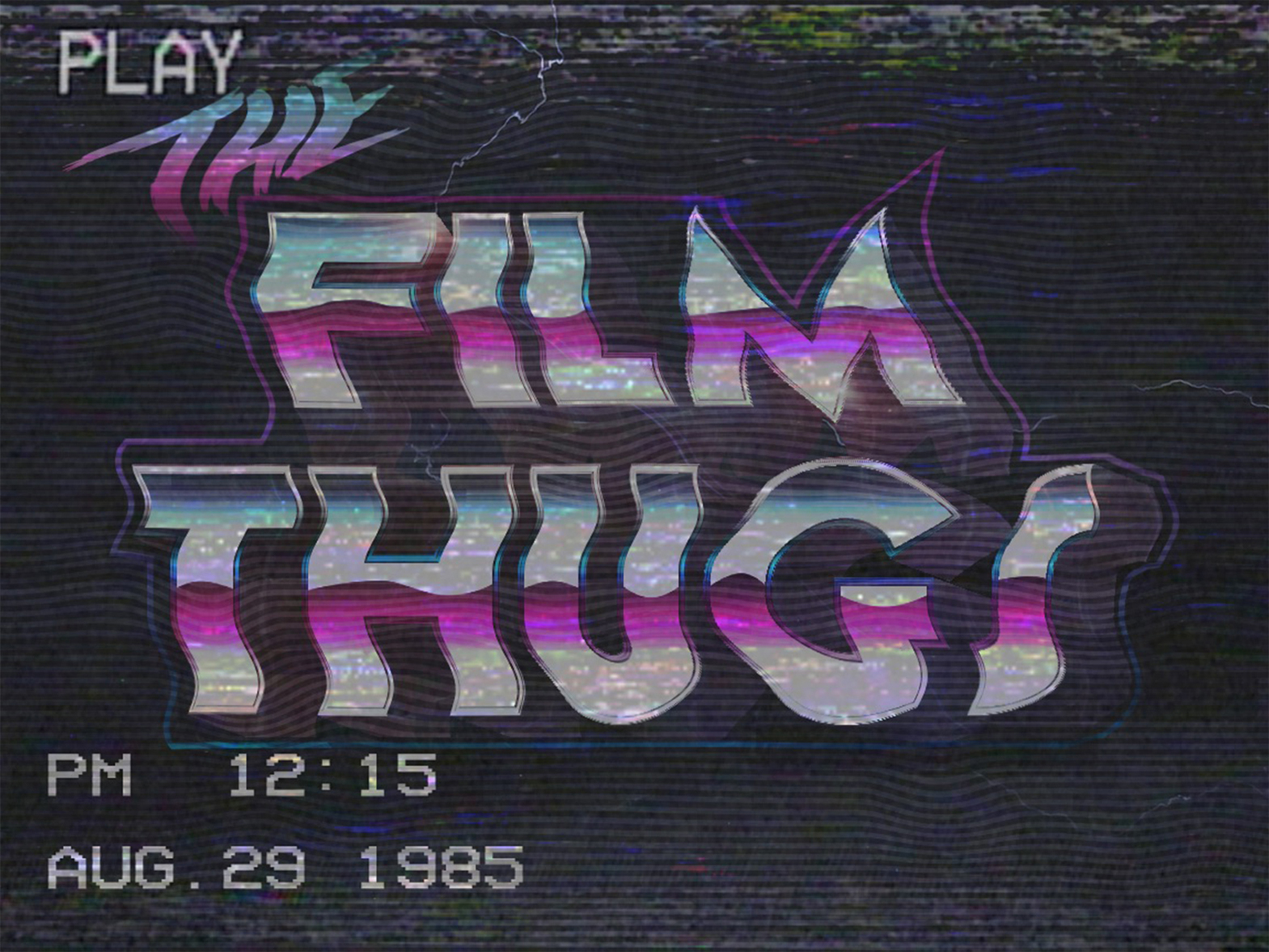Episodes
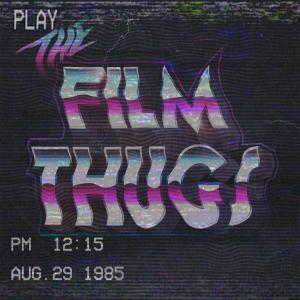
Monday Dec 13, 2010
A BOOK REVIEW!!!
Monday Dec 13, 2010
Monday Dec 13, 2010
Why is making movies so hard? Yeah, it’s a big business with a lot of people and money involved, but so are a lot of things. Is it really that much more difficult.
Let’s look at a recent release.
It started as a thriller for Gene Hackman and Justin Long, when that fell through it was turned into a romantic action comedy starring Chris Tucker and Eva Mendez, that fell apart and it was revised into a script considered, but passed on, by Adam Sandler, then by Gerard Butler, Cameron Diaz then found out about it, asked her friend and former co-star Tom Cruise to get involved, Tom said yes and brought in SEVEN new writers to work on it. During the course of these changes it has been called “All New Enemies,” “Trouble Man,” “Wichita,” and finally “Knight and Day.”
Is this a good movie? I have NO idea. Haven’t seen it. Don’t plan to see it. Why not? Because it looks like a less enjoyable experience than being shot in the leg, that’s why. But think about it. How can anything that goes through all of those changes even have a chance of being good?
But how and why does it go through all that.
William Goldman comes as close as possible to answering that question in his book, “Adventures in the Screen Trade.” Bill Goldman, for those who don’t know, is a screenwriter with 28 writing credits and 2 Oscars. His films include “Butch Cassidy and The Sundance Kid,” ‘All the President’s Men,” “Marathon Man,” “Misery,” “The Princess Bride,” “A Bridge Too Far,” and “Chaplin.” This guy knows the business about as well as anyone out there.
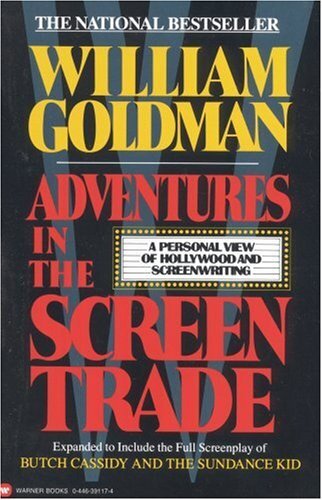
Why is the process so difficult? Because, as he says right off the bat, rule #1 in the movie business is simple:
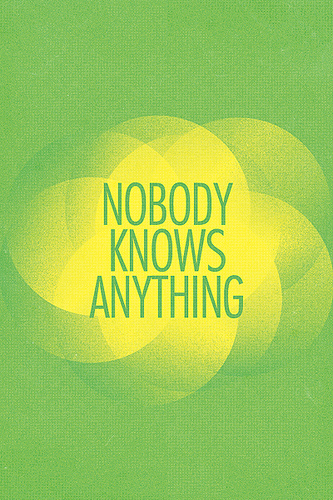
Nobody does. Not a damned thing.
Why is this movie more popular than that? Nobody knows. Why is that star bigger than that? Nobody knows. Will this wildly popular book, director, writer, and star combine to make a wildly popular movie? Nobody knows. Nobody knows why, nobody knows why not. That is the overall guiding principal of this book and the industry.
I say this without qualification. This might be the best book I’ve ever read. It is brilliantly well written, very easy to read, and absolutely fascinating. He gives you a guided tour of everything from the insanity of writing/adapting a screenplay, to securing a green light, all the way through finishing the film.
The book is divided into four parts and begins with a section called “Hollywood Realities,” that discusses “The Powers That Be” (Stars, studio execs, directors, and producers), as well as “Elements” (L.A., agents, meetings, etc.). This is more a look at the industry as a whole rather than at a particular film.
You know that the industry is insane, but you really don’t know how insane. This section goes into that subject at great length. He covers everything from the insanity of dealing with a studio to the pampering of stars to the difficulty of balancing reality and believability in film.
He also discusses “the auteur’ theory, the French idea that the director is the “author” of the film, a thought he dismisses as utter BS. With the number of people directly involved in the look, the flow, and the narrative arc how is it possible to credit one person with authorship? I had never thought of it that way before. Also, he makes a very strong argument that this idea destroyed Hitchcock. Once all these brilliant upstarts began to praise him as infallible he began the weakest run of films of his career. Is there a connection? Maybe, maybe not, but it is impossible to ignore the correlation.
The second part is dedicated to his “Adventures” and highlights the particular madness that is writing a film and beginning production. He goes through a few of his works in a fair amount of detail and shows the different issues that will pop up (from new studio heads who will kill any of their predecessors projects, to directors who will try to kill productions just to stick it to a studio they have a problem with).
Part three is all about “Butch Cassidy and The Sundance Kid.” This is probably the most honest part of any book I’ve ever read. He not only discusses the joy of working on that film, but also the problems he has with it as a more seasoned writer. Not only does he talk about what he sees as the films flaws, but also the times when he argued with the director about things he admits to being wrong about.
Part four is one of the most interesting sections to any book I’ve ever read. Here he takes a short story he wrote long enough ago to have forgotten, presents the full text, discusses the different strategies to adapting it, then writes a screenplay for it. Then, to take it a step further, he sends the story and the script to a production designer, a cinematographer, an editor, and a director (George Roy Hill, no less) and gets their input on how to make his script into a film. Nothing will ever give you a more to the point reason for how movies turn out how they turn out. The problems and differences of interpretation that arise are varied and valid, and all leave you wondering how anything ever gets made.
Basically, the book introduces the fact that “nobody knows anything” and goes on to prove that beyond a shadow of a doubt. It’s still true to this day. If you got George Clooney, Brad Pitt, Sandra Bullock, Julia Roberts in a move directed by Spielberg would it be a hit? Maybe. Maybe not. Nobody has any way of knowing.
Look at “Oceans 12.” On the surface there is no reason this thing didn’t make a metric ton of money. Yeah, it sucked. But a lot of movies that suck make a ton of money. For some reason, this one didn’t. Why? Nobody knows.
If you like movies but don’t care for reading, you will love this book. If you like reading but don’t care for movies, you will love this book. You couldn’t ask for a better written, more insightful, or a more fascinating book than this.

Monday Dec 06, 2010
Scott Pilgrim vs. The World: Just a little off target.
Monday Dec 06, 2010
Monday Dec 06, 2010
I’ve never really used the term “graphic novel.” I just haven’t. It’s a comic, right? There’s nothing wrong with that. But that’s what it is. There are people who insist on using it and I’m fine with that. What you choose to name your comic books is none of my business. Yes, I know that technically there is a difference, but I also know that I have so many more important things to think about, things like coming up with lists of things to think about, that what comic books are referred to is rather irrelevant. I normally just call them “books.”
But people who do care about this title are the types who tend to love books like “Scott Pilgrim vs. The World.” I’m not disparaging those people at all. Actually, on some levels I tend to side with them more than against. I’ve never been much on the superhero book and I put more weight on story and characters than on action. However, that being said, I am not a totally indie guy. Most of the comics I read are indie, but they are the mainstream indie. But even then, I have never read a single panel of Scott Pilgrim. This is mostly because from an aesthetic standpoint the books were always packaged to look like Manga (basically anime comics). I have never been into anime or Japanamation and the people who are over the moon about it and its aesthetics kind of annoy me (not all the time mind you, just when they are talking about anime).
So, when it was announced that Edgar Wright would be teaming with Michael Cera to adapt it I was a bit mixed in my feelings. First the source material held little appeal to me, second I am part of that group of people who has had just about enough of Cera being Cera. Like everyone else I loved him on “Arrested Development,” but have slowly begun to tire of his fumblingly awkward persona. But Edgar Wright was involved. Let me be clear; I LOVE Edgar Wright. Honestly, I love the guy. He hasn’t made anything that isn’t amazing. I am on record saying that “Shaun of the Dead” is as near a perfect film as is possible. “Hot Fuzz,” is as worthy a follow up as one could dream of, and literally any episode of “Spaced” is better than 95% of what is released in theatres. This is a man who can do no wrong.
The story is interesting. Scott Pilgrim is a loveable looser who meets the girl of his dreams only to find out that he has to fight and defeat her 7 evil exes. It’s unique and has a lot of potential.

That being said, I didn’t love “Scott Pilgrim vs. The World.” I liked it ok, but it just didn’t really do that much for me. This is a movie for the 13 year old Asian boy in all of us, unfortunately I strangled mine a long time ago.
Let me start with what I did like.
Everyone who reviews or talks about this mention my first two, Chris Evans and Brandon Routh, two of the evil exes. Evans is brilliantly over the top and appears to love every second of it. He chews the hell out of some scenery, but that is completely the nature of the character. The swaggery cocksureness of his character is hilarious would be over the top and farcical in any other film, but in this world it is oddly believable, which makes it all the more hilarious. He even finds a way to bring a nice guy edge to his character. It’s probably his best work.
Brandon Routh plays very much against type as the vegan bass player in Scott’s very successful ex-girlfriend’s band. He’s a prick, (he hits a girl, but it’s ok because he’s a rock star), and kind of an idiot (he has one of the best over talked tough talk lines ever), but swings with everything he’s got and knocks the ball clean out of the park. His fight scene also culminates in one of the best cameo appearances ever; however I shan’t spoil that for you.
My third is something that is criminally overlooked; Kieran Culkin. This guy is slowly becoming one of my favorite actors. Between this and “The Secret Lives of Altar Boys,” he has cornered the market on the confident, but not an asshole, best friend. It’s kind of refreshing. As Scott’s gay roommate he is definitely the most in control character in the film and completely owns every scene he’s in.
This next part kills me because I really wanted to love this, but it is deeply flawed on one big level. The only reason I cared at all about Scott or Ramona, or Scott and Ramona getting together is because the conventions of drama tell me I should. Scott is the protagonist, Ramona is his infatuation and that’s about it. Centuries of western narrative tells me that I have to pull for him.
The problem is that I don’t. Oh, I don’t hate him or want him to lose. I just don’t care if he wins or not. He wasn’t developed into a loveable enough looser. He’s kind of a dick. The movie starts with him dating a 17 year old (he’s 22) that he doesn’t really have any affection towards and who he completely looses interest in when he sees Ramona. That’s it. He SEES her.
Ramona doesn’t seem particularly special. She doesn’t even seem to like Scott. I know they’re going for the whole, “I’ve been hurt before,” thing, but that isn’t enough for me. I need something from her; otherwise she seems like a real bitch who is just leading Scott on. There isn’t much development of her character beyond changing her hair color every week. The relationship simply doesn’t make sense.
To make matters worse, the 17 year old (horribly named “Knives”) is one of the sweetest, most adorable, and most affectionate characters I’ve seen in years. And she and Scott have a genuine connection. So when he dumps her… it’s like watching someone kill a childhood pet because they saw a picture of a cuter one in a pet store window. All I wanted was for her to get over Scott and find a nice guy and be happy.
Had she been a bitch he was unmotivated to break up with, then he meets this girl and has a connection, which pushes him to break things off with Knives and then have to fight to keep hold of this happiness he’s found, well then you have yourself a movie. As it stands, there is genuine attraction and connection between Scott and Knives (genuine reciprocal attraction) and he decides to toss her aside because he sees an attractive girl who doesn’t seem to give a crap about him.
The real problem is that none of the action drives the plot, the plot dictates the action of the character. Why does he like her? Because the movie needs her to? Why does he dump Knives? Because he needs to for the story. Why is he fighting for this girl who seems ambivalent towards him? Because there is no movie if he doesn't.
This is where I can hear people saying, “But it’s just a fun movie Jim!” That is a cop out. “Shaun of the Dead” was just a fun movie, but they were able to provide some sort of emotional connection and arc that made the characters genuinely likeable and made you care about what happens to them. And the people who are into the book can carp on all they want; this movie fails the basic “indie” comic test. It is all about the visuals and the action and the characters and story are left secondary. Yeah, I get that it’s a supposed to be like a video game that’s a movie, but that’s the point. It’s a video game that’s a MOVIE. The story has to be king. I found myself at the end not caring about what happens to the relationship, not being invested in Scott’s growth, and not having any feelings one way or the other about the proceedings. Basically, I felt like I had spent 90 minutes playing a video game, but without the satisfaction of killing anyone myself.
Oh, and on the subject of the visuals; I didn’t find them as annoying as I thought I would. I was literally thinking to my self while watching it, “This should be getting on my nerves, but it’s not.” They were over the top and all over the place, but the world of the film was set up so that, for as ever present as they were, they felt like a natural and unobtrusive part of the characters every day life.
So, this isn’t a bad film, it’s just not a particularly good one. Yeah, it’s enjoyable and funny, but it’s also immediately forgettable. There’s nothing wrong with that if all it’s taken for is disposable entertainment. But I get the feeling that there was a slightly higher aim, and for me it just missed that mark. This makes me a bit sad because there is potential for something more here, and if Edgar Wright can’t hit that mark with this material, nobody can.

Monday Nov 22, 2010
Best Worst Movie: Making the best of a bad situation
Monday Nov 22, 2010
Monday Nov 22, 2010
It's Jim again,
If there is anything people enjoy more than a good movie, it’s a bad movie. In fact, it’s a SPECTACULARLY bad movie. There is something pleasing about seeing an unqualified fiasco come to completion that is morbidly captivating. As much as I enjoy “Boondock Saints,” I have a special fascination with its unwatchable sequel. Just knowing the number of steps necessary to finish and release a film, and knowing that at no point during that lengthy and involved process did anyone step up and say, “You know, maybe this thing isn’t… well, it kinda sucks. Are we sure we want to do this?” amazes me.
Few movies hit such a sublime level of disaster as fully or as cleanly as the now legendary “Troll 2.” Though I have personally never seen it I have been fully aware of its existence for years. I haven’t avoided it, I just haven’t been interested. Horror really isn’t my thing. All I know is that there is nary a troll to be seen throughout and the entire thing was helmed by a man who didn’t really speak English.
Originally called “Goblins,” the cast and crew of this film was comprised of three different types of people:
1) Those who had never worked on a film before.
2) Those who didn’t speak English.
3) A crazy old man who didn’t seem to be aware that there were cameras present.
The only way they could have set themselves up for disaster any more is if they shot without a script, which it seems like they did at times.
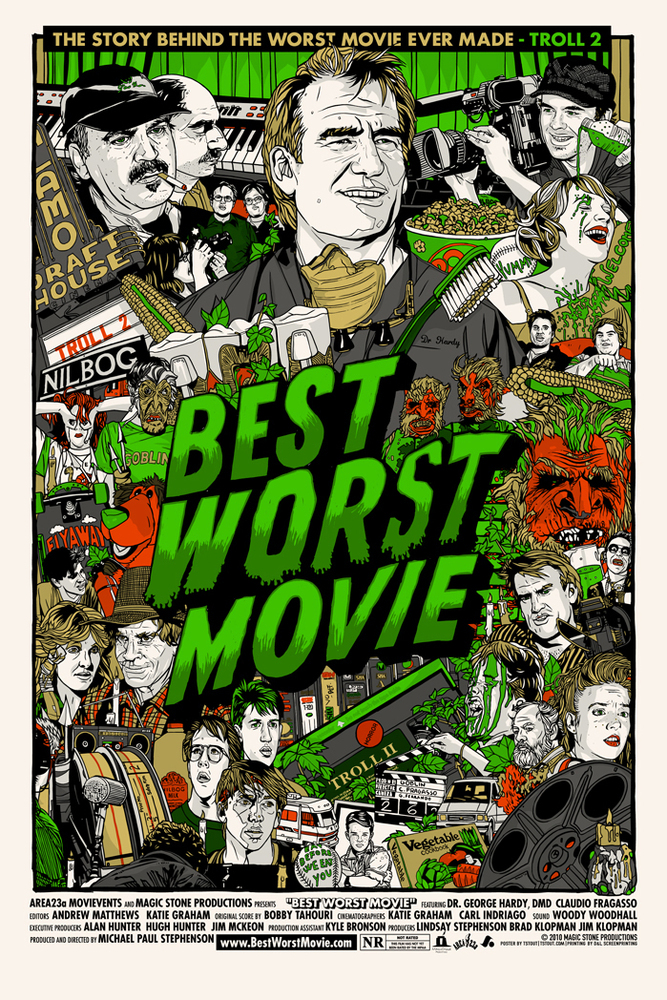
So, the movie gets released as “Troll 2” despite the total absence of trolls and the absolute lack of connection to the original “Troll” film and is immediately identified as a singular example of cinematic failure. But, as I stated earlier, just because it’s doesn’t mean people won’t love it. “Best Worst Movie,” is a documentary about what happens when a movie this bad lands in a world that loves movies that are this bad.
Up front, this is a good documentary but it’s also a bit scattered and unfocused. It’s not exclusively for fans of “Troll 2,” but being a fan doesn’t hurt. A lot of people lose their minds over this film and I guess I sort of get that, but I think that comes more from getting into the spirit of the thing than the actual filmmaking.
My only problem is, as I said before, how unfocused it feels. First time writer/director Michael Stephenson (star of the subject film “Troll 2”) does a solid job of delving into the world of Troll 2, catching up with the cast in “where are they now” interviews, examining all the things that went wrong during production, and immersing us in the “cult of Troll 2,” that has sprung up among horror fans over the years. If it sounds like there is a lot going on here, there is.
What makes this documentary good but not great is the filmmakers attempt to include too much. There isn’t a central thrust. We get an introduction of George Hardy, the father in the film, now a beloved dentist in Alabama. You find out about him, his life since the film, how he came to be involved in the film and how it has impacted his life. You meet the filmmaker, star of the original film, who discusses some of the great and not so great things about being in a film like this. The film then jumps into the world of the obsessed fans that hold annual screenings, travel great distances for theatrical screenings, get tattoos, and in general elevate this film to its mythic status.
Then they spend some time discussing where the film went wrong, talk to the director who gets rather belligerent at the mere suggestion that there is anything wrong with his film. They travel to the original filming locations, attend an Alamo Drafthouse Rolling Road Show, put on a screening in Hardy’s home town for charity, go to merchandize and horror film conventions, and… well, there is a lot going on.
At the end of this film I definitely felt more informed and had been entertained, but I was also puzzled. There didn’t seem to be any real thesis here. There was a lot going on and it was interesting, funny, and sad at times, but I’m still not really sure what the director wanted me to take away from this. Every time it feels like it’s going in a focused direction something pops up and pulls the film in a new direction. It’s interesting, but it definitely takes the focus away.
I will say this; the film does an outstanding job of capturing the frustration that comes with being a part of something like this. You cans see that for as much as he loves the “fame” George Hardy begins to see how much of a trap it is. With the recognition comes the endless repetition of his signature line, “You can’t piss on hospitality, I won’t allow it,” and that for all the excitement of the screenings, there is little interest in the rest of the world (there are a few fairly uncomfortable scenes at different conventions that are a little hard to watch).
The small things that keep a good movie from being great are very similar to the things that keep a bad move from being so spectacularly awful that it becomes good again. “Troll 2” achieved the latter by quite literally getting everything from script to cinematography wrong. “Best Worst Movie” almost achieves the former but tries to encapsulate too much of this unbelievable world to really cross over. Don’t get me wrong, this is a good film, but it just falls short of being the great film it could have been.

Thursday Nov 04, 2010
Big Jim Review: Four Lions
Thursday Nov 04, 2010
Thursday Nov 04, 2010
Jim here,
Full blown satire is one of the hardest things in the world to pull off. Go too far and you run the risk of losing your audience. Don't go far enough and you end up weak and irrelevant. Put in too much drama and you come off forced and preachy, not enough and there isn't any resonance or reason to care.
This is what makes films like "Dr. Strangelove," "The Life of Brian," and "Airplane" work. Yes, they pile on the funny, but in doing so they still create engaging and compelling characters that invest you in the proceedings. Even in tackling rather touchy subject matter, nuclear war in the midst of the heated cold war, religion, faith, and martyrdom, or even a pending disaster threatening the lives of hundreds of innocent people aren't, on the surface, fertile ground for comedy. Yet, they are handled in such a way as to make them not only great comedies, but great films.
With this in mind I sat down for an advanced screening of "Four Lions," a heavy satire about a group of terrorist wannabes planning an attack in London. To say this film had an uphill battle is a MASSIVE understatement.
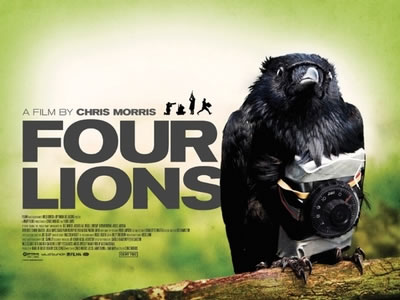
Thing is, this movie pulls it off. By playing the absurdity of the characters as a believable reality the end product is completely hilarious and fairly powerful at the same time. I am by no means putting this on the same level as "Strangelove," but it is as close as any filmmaker today will have the stones to make.
This film is a hard sell because it is quite literally impossible to describe t in any way that makes it sound even remotely funny. It just isn't.
It begins with a split story, one focusing on Omar (the closest to a real moral center in the film, a conflicted man who seems to believe but still struggles with what he thinks has to be done) and Waj (a very sweet and very dim guy who seems to be along for the friendship more than anything else) as they go to Pakistan to be trained. Their horrible ineptitude keeps them from being accepted until an accident forces them to return to England.
While they are off training, a local group, Hassan (young and stupid, but not as harmless as Waj, who is in way over his head), Fessal (a bit more of a true believer who is trying to train crows to carry bombs as suicide bombers, this does lead to some very funny stuff), and Barry (a British convert who shows what happens when a very angry, not terribly bright person locks on to an ethos) begin to plan an attack.
When Waj and Omar return they join the group in their plan to bomb... something. The location seems secondary, all that's important is that they want to bomb SOMETHING. Barry, who believes that, since, "we have women talking back, people playing stringed instruments. It's the end of days!" wants to bomb a mosque to radicalize the moderates to rise up against the west, Omar insists on a different locale.
What separates this film from the insipid crap passed off as satire these days is that the characters do not think they, or any of the situations they find themselves in, are absurd, no matter how much so they might be. There is no self consciousness or playing to the camera. There is nothing worse than a character who realizes they are funny, and these characters do no, even though they are hilariously so.
Satire is best when it pulls no punches, and these filmmakers keep that in mind throughout. The constant subversion of expectations keeps the humor going strong, even though, were you to think about any of it, you probably would be too horrified to laugh.
It does begin to feel a little long near the end because, as it moves towards what seems to be an inevitable ending, the filmmakers write a heavy narrative check that you don't really want to see cashed. But no matter how heavy it gets they are able to return to the base of comedy, as any truly good farce will. But also the pace is due to how the film balances the farcical comedy and the real world repercussions of terrorist activities. This is a difficult balance, but it is struck quite well here.
This is by no means a film for the overly sensitive. If the idea of a comedy about terrorists planning an attack seems off putting to you, then in all honesty this might not be the film for you. But if you approach it as something that points out the absurdity in something terrifying then there isn't any reason you won't fully enjoy this. It is a rare movie that can completely bum you out, then make you laugh, only to bum you out a moment later and bring you back to laughter, but "Four Lions" pulls that off.
Check it out, enjoy it. Remember, nothing is offensive if it's funny.

Wednesday Oct 27, 2010
Final Day at 2010 AFF: BLACK SWAN
Wednesday Oct 27, 2010
Wednesday Oct 27, 2010
Austin Film Festival Day Seven Rundown
October 28, 2010
BLACK SWAN
D. Darren Aronofsky
Just finished up my run at this years Austin Film Festival with the wildly anticipated "Black Swan" by Darren Aronofsky.
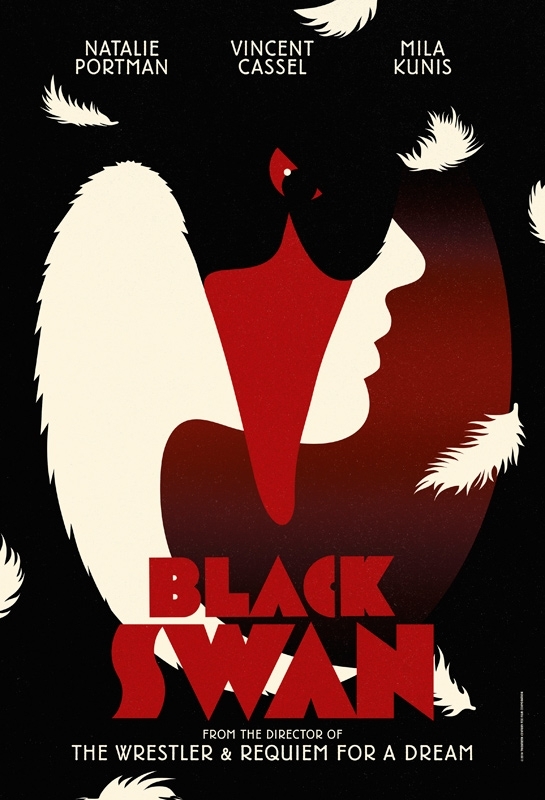
Aronofsky is, in many ways, like Nick Cave. You know going in that you are going to get something gritty, raw, and real. You know that, even if it's good, it's going to be hard to process. But when he gets a hold of something, really gets a hold of it, you won't be able to look away, no matter how hard it is to watch. He is a singular filmmaker in the regard that he can create something that is both visceral and cerebral at the same time. Others can do this, but few as well. What he does is never hollow, shallow, or empty, it is always dense, deep, and rich with everything that makes film great.
"Black Swan" is no exception. In many ways this is the most Aronofsky of his films. His style is spot on and works exquisitely with the world he is presenting. It's surprising because he normally shows the dirty, gritty, and ugly places, where as everything in this film is clean and polished. But don't let that fool you, he saved the dirt and grit for the characters. It's remarkable that the man who was able to show the sensitive, and vulnerable side of a wrestler is also able to show the brutal and hard side of a ballerina?
For starters, this film looks amazing. The production design, specifically the use of black and white in contrast (don't spend time looking for this, it's everywhere and you will miss something if you do) does it's job without feeling invasive. The lighting is brilliant, as is the staging of the dance scenes. I'm still stunned that the same eye that brought the grainy subway bathroom of "Pi" to life is the same eye that brings all this rich and beautiful color so clearly to the screen.
He also does a brilliant job of creating the world that these characters inhabit. This film reminded me of all the terrible parts of my theatre days. The backstabbing, the shit talking, and the two faced nature of that world is portrayed with a deft and brilliant touch. There is a constant fear that you are one mistake away from losing not only your part, but your future parts as well. You feel like you are a part of this world, that he pressure of it is part of your world.
The camera work is great, if a little typical of Aronofsky at times (we see the backs of heads quite a bit, it works, but you see it a lot), but it is very affective. The somewhat jittery, close handheld shots are perfect and pull you deeper into this world than may be comfortable.
Then there are the name performances. Of the name actors you mostly get what you expect. Portman, Cassel, Hershey, and Rider are outstanding. The only real shock, for me anyway, is Mila Kunis. I know her as Jackie from "That 70's Show," and nothing else. She damned near steals the show. That's right, in a move where she shares screen with Natalie Portman, AND Vincent Cassel she is able to not only hold her own, but walk away with some scenes. The interplay between her wild, unrestrained Lilly, and Portman's frightened, tightly wound Nina creates a brilliant external tension to match, and at times overpower, the internal tension that lies at the very core of Nina.
I have been a fan of Aronofsky's work since I saw "Pi" on it's original theatrical run ( I think I was the only person in the theatre for that midnight show), and he has yet to disappoint. He has a definite point of view and a thematic core that runs through his work. Thematically, this is in keeping with most of Aronofsky's work. It's about control and the loss of that control. What happens when a perfectionist control freak is in a position where she HAS to let go of that control? What takes over when she does let go? In typical fashion, Aronofsky shows us that sometimes in striving to get what we want, we risk losing a part of us that we may never be able to get back, and don't realize how desperately we need.

